ADVANCES IN BIOSCIENCES, FOOD, AND HEALTH

SOLUTIONS TO THE CLIMATE CRISIS
STEWARDSHIP OF NATURAL RESOURCES


ADVANCES IN BIOSCIENCES, FOOD, AND HEALTH

SOLUTIONS TO THE CLIMATE CRISIS
STEWARDSHIP OF NATURAL RESOURCES


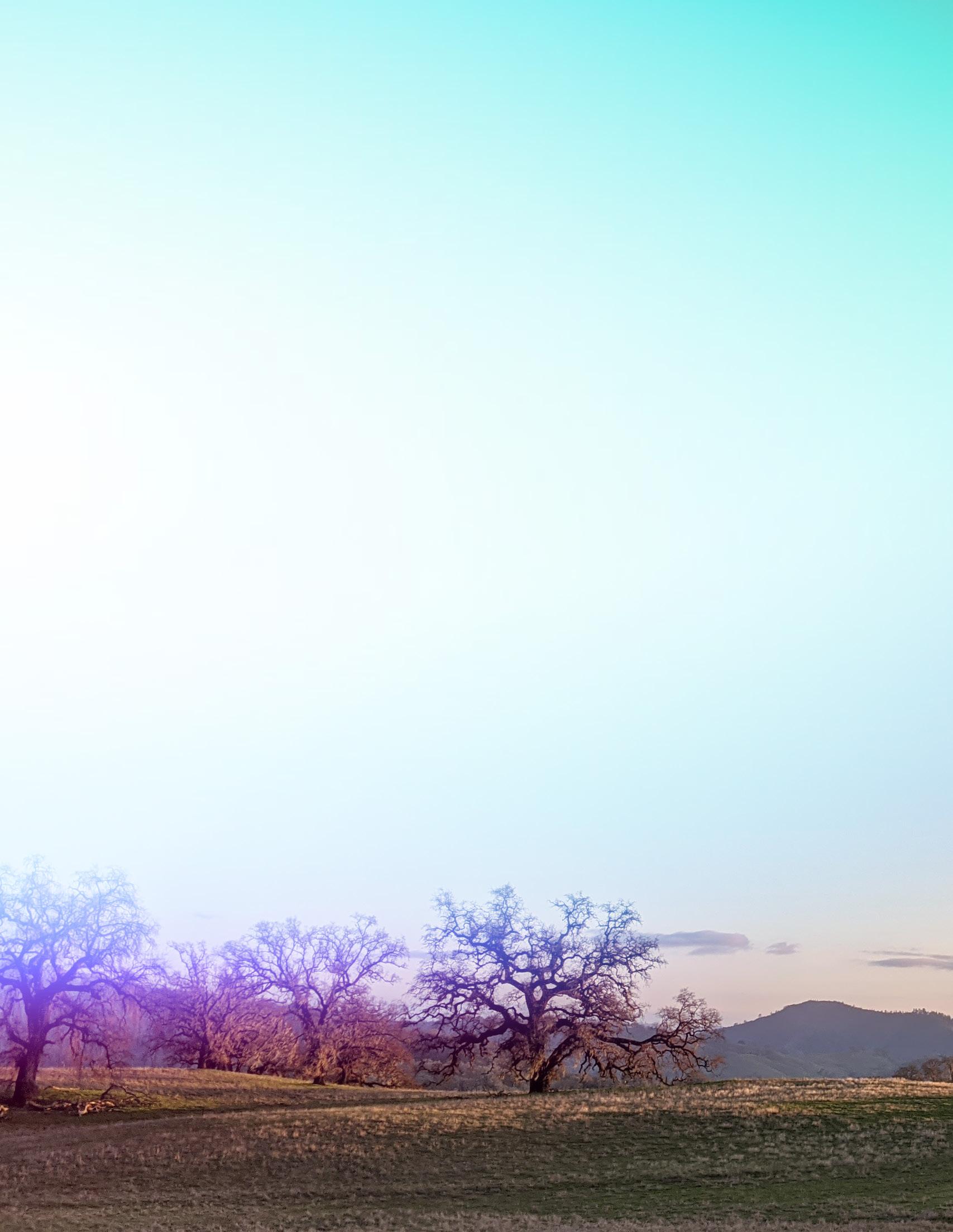
When it comes to the world we live in, no detail is too small to be noticed and connected to something bigger. At UC Berkeley’s Rausser College of Natural Resources, we study natural and human systems from biological, ecological, economic, and social science perspectives. And we do this with intention—studying how all aspects of our environment intersect and support each other so we can do more in the world, and do it wisely.
The challenges facing our natural and human environment are immense and it is imperative that they are addressed through inclusive, rigorous, and translational solutions. No college in the world is better equipped to take on these challenges than Rausser College of Natural Resources. We create solutions that protect Earth’s natural resources, ensure economic and ecological sustainability, and improve human health. We are committed to sustainability with justice, in our research, teaching, and service, as well as in our own community.
The following Strategic Plan was developed over the course of the 2021-22 and 22-23 academic years and involved a robust community engagement process. We solicited ideas and feedback from staff, faculty, researchers, students, alumni, donors, and other partners and stakeholders.
Out of these discussions came a clear vision framework, mission, and set of guiding principles that will anchor and propel the College through the next five years and beyond. All priorities outlined in this vision will advance the future of the College. Initially, we will focus our energy and resources on three key priorities:
» Build interdisciplinary science initiatives, with strengthened community engagement and public-private partnerships.
» Improve undergraduate first-year experience and expand discovery opportunities.
» Deepen our diversity, equity, and inclusion commitment and programming.
We are excited about what the future holds and how our work at Rausser College of Natural Resources will create positive change for the natural and human environment. I look forward to partnering with you and many others to ensure the ongoing success of the College and ever-increasing impact of our work.
 David Ackerly, Dean, Rausser College of Natural Resources
David Ackerly, Dean, Rausser College of Natural Resources
We study how all aspects of our environment intersect and support each other so we can do more in the world, and do it wisely.
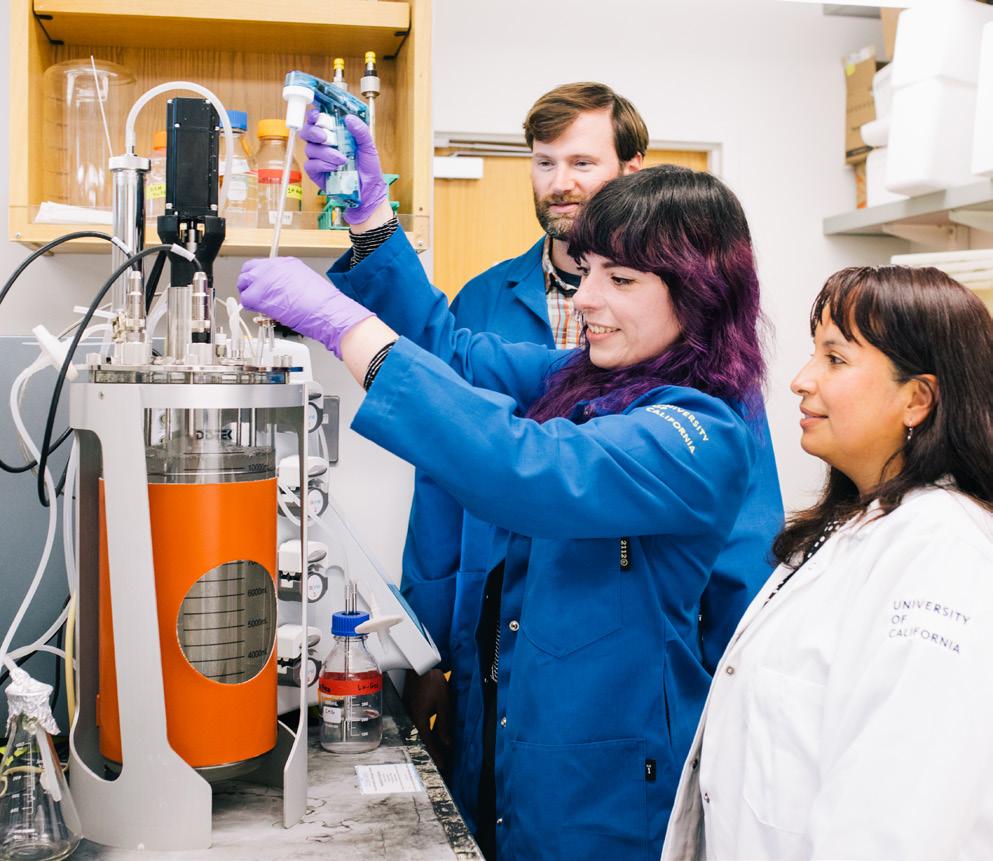
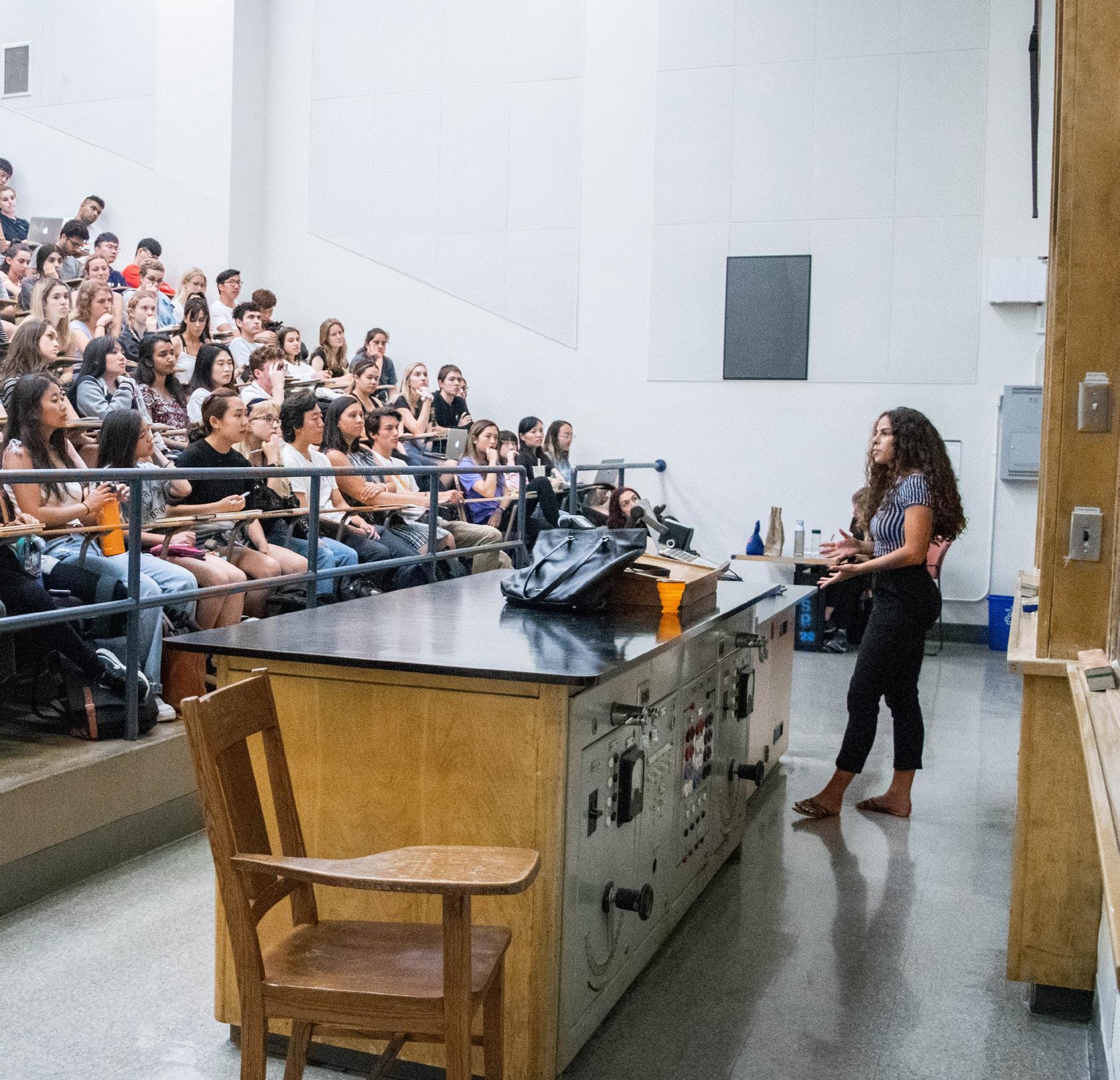

UC Berkeley’s Rausser College of Natural Resources (Rausser College) studies how all aspects of our environment intersect and support each other through the study of natural and human systems from biological, ecological, economic, and social science perspectives. The College is a national and global academic leader in natural and social sciences aligned with natural resource management, international development, energy, environment, plant and microbial biology, and nutritional sciences and metabolic biology. We were formed from the merger of the College of Agriculture and the School of Forestry in 1974 (the College of Agriculture was one of the University of California’s original colleges at its founding in 1868). Rausser College is affiliated with the University of California’s Division of Agriculture and Natural Resources (ANR). Our faculty and cooperative extension specialists work together along with schools and colleges at UC Davis, UC Riverside, UC Santa Cruz, and UC Merced under the umbrella of the Agricultural Experiment Station to serve the mission of the federal land-grant universities and colleges. The College was renamed Rausser College of Natural Resources in 2020, in honor of a $50 million philanthropic commitment from Agricultural and Resource Economics emeritus professor and former college dean Gordon Rausser.
Rausser College provides a small-college experience at the world’s greatest public university, combining hands-on experience with rigorous education. Rausser College currently (2023) has about 125 faculty (including >15 professors of cooperative extension), more than 2,500 undergraduate and 400 graduate students, 13 interdisciplinary research centers and facilities, nine undergraduate majors, nine undergraduate minors, and 12 graduate programs, organized in four academic departments and one graduate group:
» Agricultural and Resource Economics (ARE)
» Energy and Resources Group (ERG)
» Environmental Science, Policy, and Management (ESPM)
» Nutritional Sciences and Toxicology (NST)
» Plant and Microbial Biology (PMB)
Rausser College currently (2023) has an operating budget of $50 million, as well as more than $40 million in grants and contract funding each year. The majority (around 70 percent) of the operating budget is received from the central campus, with donor gifts, endowment income, and UC ANR funding representing the most important other sources. The market value of the College’s endowment has grown to over $165 million.


The Rausser College Strategic Plan serves as the guiding document for the College’s work over the next five years and beyond. The vision, mission, and guiding principles established through this Strategic Plan will define the work and future pathways for the College to support the success of students and researchers; growth of faculty, instructors, and staff; and strength of community relationships and connections—all of which are critical for ensuring the long-term success of the College and the impact of the College community in addressing the most pressing challenges facing the world. The following are the core elements of the Strategic Plan, which includes: Vision Framework; revised Mission and Values Statements; and our newly developed set of Objectives and Actions.

The College is a national and global academic leader in natural and social sciences aligned with natural resource management, international development, energy, environment, plant and microbial biology, and nutritional sciences and metabolic biology.
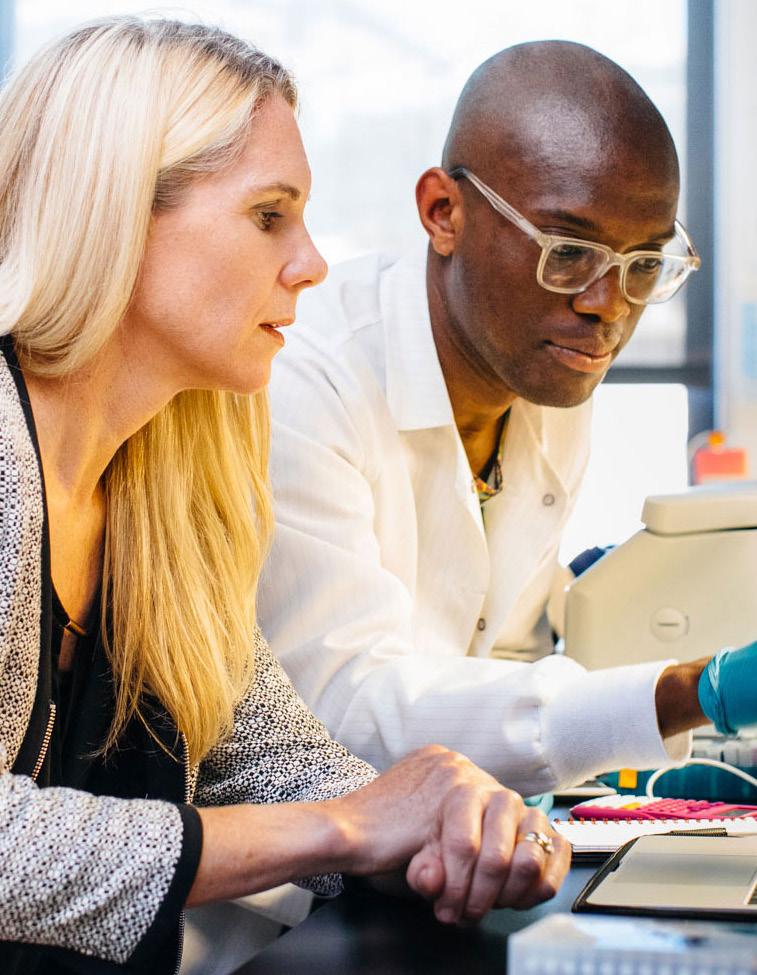
EFFICIENT
ADVANCES IN BIOSCIENCES, FOOD, AND HEALTH
EQUITABLE
SUSTAINABLE
SOLUTIONS TO THE CLIMATE CRISIS
STEWARDSHIP OF NATURAL RESOURCES
SCALABLE
Biological sciences and systems are generating critical advances in human health, resilient food systems, and the bioeconomy of the 21st century. We pursue foundational research in plant, microbial, and metabolic biology to understand the molecular and cellular mechanisms of living systems. We apply this knowledge to understand both the functioning of healthy systems and the causes of disease, focusing on microbial diseases of plants and humans, and human diseases related to nutrition and metabolism. We draw on insights from the social sciences to understand factors that shape the global food system, and seek innovative and equitable solutions that benefit human and ecosystem health.
The urgency and complexity of global climate change call for a just and sustainable transition to a resilient, clean-energy future. We are developing new technologies and nature-based solutions for carbon sequestration and management, as well as sustainable and efficient energy and transportation systems. We apply our expertise in economics and policy to help mitigate and adapt to the societal and environmental costs of climate change. We center environmental justice and climate equity, elevating the voices of and impacts on historically marginalized communities, and we partner with communities to seek equitable climate solutions.
The future of humanity and the natural world requires thoughtful and informed stewardship of our natural resources. We study terrestrial, aquatic, and marine systems and their relationship to biodiversity and human well-being, offering new insights and best practices to promote sustainable ecosystems across California and around the world. We bring expertise in human-wildlife interactions, biodiversity conservation, land use, air and water quality, waste, pollution, soil health, forests, and wildfire. We draw on diverse perspectives to expand understanding of coupled human-natural systems and effectively address threats and challenges, promote active stewardship, and better link science and technology to society and sustainability.
Rausser College of Natural Resources embraces the University of California’s public mission, serving the people of California, our nation, and the world.
We conduct fundamental and applied research in the biological, physical, and social sciences. We train and educate future leaders and scholars, and engage with public and private partners, to meet the pressing social and environmental challenges of our time. Through our research, teaching, and outreach, we seek equitable, scalable, and innovative solutions that address the climate crisis, promote ecological and economic sustainability, and improve human health and well-being.
We value excellence in all we do: research, teaching, and service to society.
We value diversity in our College community and strive to apply the principles of equity, inclusion, and anti-racism in our research, teaching, and service.
We value meaningful and inclusive engagement with our community partners and the public and private sectors.

The College of Natural Resources last conducted a formal strategic planning process in the late 1980s. These discussions were part of the process that led to the reorganization of biological sciences on campus and the creation of PMB and ESPM in the late ‘80s and early ‘90s. The Berkeley campus recently completed a strategic plan that provides a strong context for College-level planning. Departments conduct academic reviews every 10 years, and each year present their annual faculty hiring requests in the context of a departmental hiring plan, which the Dean’s Office evaluates and submits to central campus in the context of College-level strategy and priorities.
The time was right in 2021 to conduct a College-wide vision and strategic planning effort (see diagram below). The rationale for this project was three-fold. First, from an intellectual and academic perspective, Rausser College’s research, teaching, and service have never been more important, and our core disciplines—spanning microbial and plant biology, metabolic biology, environmental sciences and management, energy studies, and agricultural and resource economics—remain central to our mission. Yet, in the face of the climate crisis, the pandemic, and the imperative to deepen our commitment to equity and justice, we must sustain our academic excellence and reimagine how we engage with communities, and the public and private sectors, to address the challenges of the 21st century. Many of our peer institutions are reinventing themselves, either in name or substance, and we need to ensure that we are looking forward and offering competitive opportunities to the next generation of students and faculty.
Define our shared outcomes for the process and identify issues and priorities for the future through a range of engagement activities.
Review and refine the College’s vision, mission, and values, and develop specific goals and objectives for the next five years.
Develop actions to meet these goals and objectives, and a set of metrics and impacts to track our progress.
The second reason is to advance our goals in relation to diversity, equity, and inclusion, as we grapple more deeply with the ongoing reckoning with social justice in America and worldwide. We have faculty deeply committed to this work in their research and teaching, and we need to extend this commitment across all aspects of the institution. We have provided campus leadership for the recent Climate Equity and Environmental Justice (CEEJ) cluster hire, which has created the nucleus for an exciting expansion of research and teaching in these areas at Berkeley. Collectively, we have embraced best practices in faculty hiring, redesigned graduate admissions and recruitment, and implemented a range of new programs on behalf of faculty, students, and staff. But our work is never done, and we must be both reflective and committed on the path ahead.


The third reason is operational and financial. While state funding and tuition are both growing modestly at this time, they are not keeping pace with growth in expenses. Rausser College constitutes about eight percent of the Berkeley campus (in terms of the number of faculty, students, or operating budget allocations, among academic units). However, our undergraduates take a smaller percentage of their total course enrollments within the College, compared to other units, which could affect funding allocations in the future. Importantly, the Rausser gift and several other recent endowments have created a permanent revenue stream of unrestricted income, which will grow to about 10 percent of our instructional and administrative operating budget in the years ahead (i.e., excluding faculty salaries). This represents the leading edge of a shift towards greater reliance on philanthropy for our core operations, and we need to supplement that with diversified revenue streams, including professional programs, to build financial resilience in the face of continuing budget pressures.

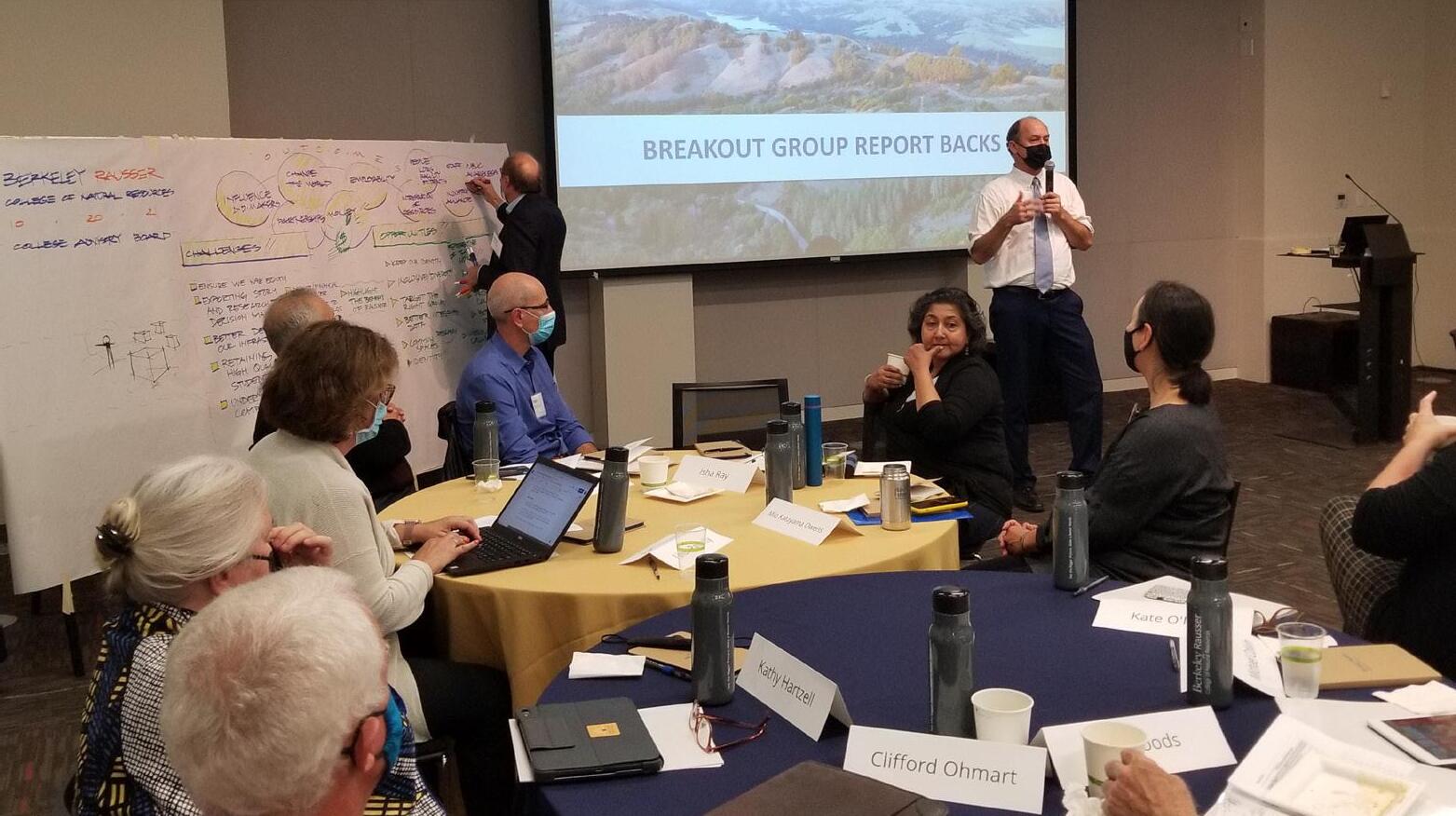
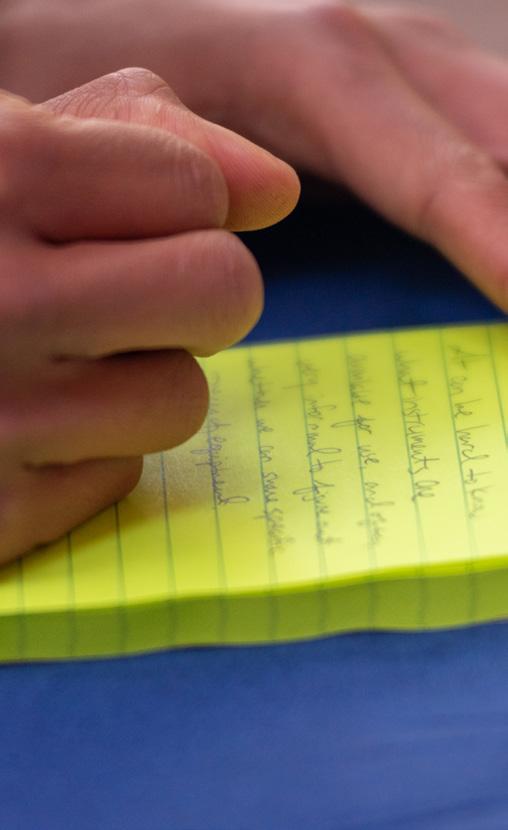
Rausser College worked closely with MIG, a Berkeley-based consulting firm with extensive experience in academic and non-profit strategic planning, to guide our strategic planning effort. The planning process kicked off with an initial engagement session with the College Advisory Board on October 20, 2021, and concluded with the community presentation of the plan in March 2023. A Strategic Planning Committee (SPC) was formed early on by the College to provide oversight and guidance for the process, synthesize input from the various working groups and stakeholders, and review draft and final plans. The SPC met eight times and provided a wealth of insights and a thorough review of draft ideas and objectives for the plan.
In addition to the SPC, the College also formed a series of Working Groups, each tasked to address the three challenges outlined above in the context of different aspects of College operations and future vision. Each Working Group was composed of a mix of faculty, staff, graduate and undergraduate students, and members of our College Advisory Board. The bulk of the planning process was undertaken by the various Working Groups, and their final reports (available online) were used to develop and refine the Strategic Priorities, Objectives, and Actions included in this plan. Drafts of the emerging priorities were shared with all faculty and staff, for discussion in faculty meetings and via direct feedback to the planning group in Fall 2022.
Dean Ackerly would like to acknowledge all input, feedback, discussion, and engagement gained throughout the planning process. Many staff, faculty, researchers, undergraduate students, graduate students, donors, and partners contributed thoughtful ideas and insights during the strategic planning process. While the final product may not incorporate all perspectives across our diverse community, we hope it captures our shared priorities and lays the groundwork for the years ahead.
As part of the planning process, MIG prepared an Environmental Scan that provides a summary of Rausser College’s current (2022) reputation, positioning, strengths, and weaknesses. The scan was developed from an array of internal and external discussions and data reviews. It includes a summary of input from College members and community stakeholders regarding the College’s challenges and future opportunities. The following page summarizes the key findings identified by the Environmental Scan.


Our roots extend to the beginning of the UC system, when the Federal Morrill Act established a national system of land grant universities. In 1868, the California legislature established the University of California in Berkeley and the College of Agriculture was one of the founding colleges.
We recognize and acknowledge that 1.7 million acres of California tribal lands were transferred by the Federal Government to establish the land grant universities across the country, including ~150,000 acres of land from 73 California Tribes that supported the founding of the University of California. Consistent with our values of community and diversity, we have a responsibility to acknowledge and make visible the university’s relationship to Native peoples, and we will work to hold ourselves and the University of California more accountable to the needs of American Indian and Indigenous peoples.
Our College is diverse and growing. As of Fall 2022, Rausser College’s student composition was made up of 2,645 undergraduate students and 415 graduate students.
Undergraduate Students
Identifying as Female
TFemale TOther
Spring 2022
654 graduates
Fall 2022
632 First-year students
129 Junior transfers
Identifying as URM or Asian
T43% Asian-American T25% URM
T32% White/Other
Domestic Graduate Students
Graduate Students
Identifying as Female
TFemale TOther
Identifying as URM or Asian
T19% Asian-American T19% URM
T62% White/Other
Abraham Lincoln signs the Morrill Act, creating land-grant university system University of California is founded, along with the College of Agriculture, Mining and Mechanical Arts Department of Forestry is created School of Forestry is created College of Natural Resources is formed through merger of the College of Agriculture and School of ForestryWe are home to four academic departments (ARE, ESPM, NST, PMB), one graduate group (ERG), 23 interdisciplinary research centers and facilities, nine undergraduate majors, nine undergraduate minors, and 12 graduate programs. The graphic below illustrates where peer departments are located, for each of our programs. Only Cornell has four comparable departments that are also located within a single College.
Cornell University
Stanford University
Harvard University
UC Davis
Columbia University
Yale University
University of Michigan
University of San Francisco
University of Chicago
UC Santa Barbara
Duke University
University of Minnesota
University of Texas
UC Santa Cruz
University of Wisconsin
University of San Diego
Pennsylvania State University
Michigan State University
University of North Carolina
Our College has many unique strengths and attributes, as recognized by both internal and external leaders:
» Top ranked programs across all disciplines.
» All the advantages of a small college, located within the nation’s top public research university.
» Ability to leverage land grant university resources, collaborations, and external engagement focus.
» Ties to Cooperative Extension and UC Division of Agriculture and Natural Resources, which allow for creative research collaborations and funding opportunities.
» Applied interdisciplinary work and research approach.
» A track record of attracting top faculty, researchers, and students.
The achievements and honors garnered by Rausser College’s faculty grow too quickly to keep up with, but the most recent tally includes:
4
Contributors to IPPC reports that won the Nobel Peace Prize
7 MacArthur Fellows
3 Volvo Environmental Prize Recipients
38 American Association for the Advancement of Science Fellows
40 Fulbright Fellows
6 Guggenheim Fellows
20 Members of the National Academy of Sciences
2 World Food Prize Winners
9 American Academy of Arts and Sciences Members
1 Van Leeuwenhoek Medal Recipient
3 Wolf Prize Winners
12
UC Berkeley Distinguished Teaching Award Winners
22 California Academy of Sciences Members
Rausser College is the leader in advancing biosciences, food, and health; formulating solutions to the climate crisis; and enhancing stewardship of our natural resources. To sustain our excellence and engagement, the College will build upon its strengths and also strategically invest in new programs, processes, and partnerships. The following section outlines strategic objectives and actions Rausser College will undertake to advance these initiatives, organized around the following five overarching College priorities:
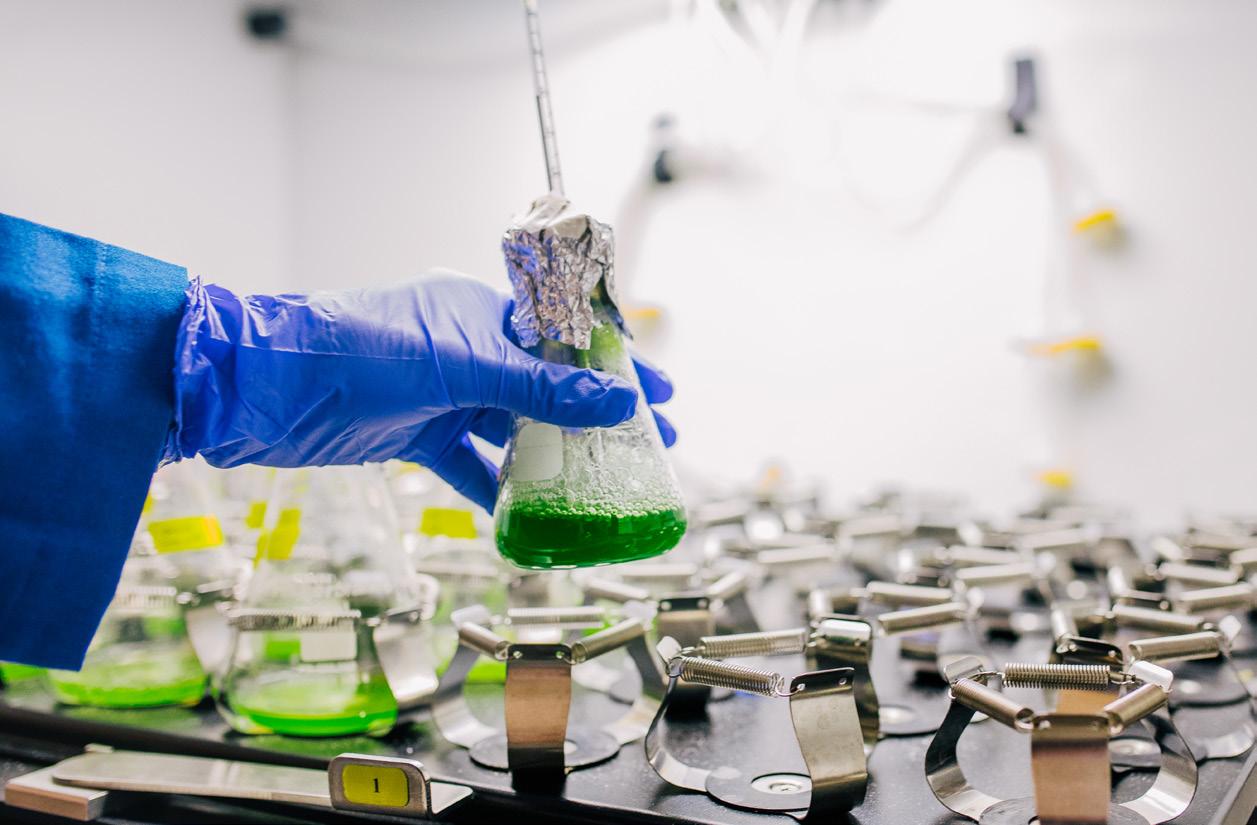
A. Science and Solutions
B. Undergraduate Experience: Excellence, Inclusion, and Discovery
C. Community and Belonging
D. Financial Strength
E. Telling Our Story
Objective: Advance critical research challenges aligned with the College’s mission, drawing on complementary strengths of our Departments and campus partners.
Pursue multi-department faculty cluster hires and associated research initiatives.


» Identify interdisciplinary challenges and opportunities that will address shared goals and advance the College’s mission, via one or more cluster hires that span multiple departments. Use clusters to strengthen interactions among faculty and identify opportunities for graduate student support and training and new curriculum. Identify opportunity for engagement with communities, tribes, policy makers, industry, and key stakeholders working with the faculty clusters.
» Seek philanthropic support for workshops, symposiums, and research seed funding program(s), with established criteria aligned with actions noted above.
» Strengthen partnership with the Berkeley Research Development Office (BRDO) and Corporate and Foundation Relations (CFR) to improve awareness of funding opportunities and provide support for submission of institutional grants (e.g., training grants; centers; Diversity, Equity, Inclusion, and Belonging (DEIB) programs, etc.).
Objective: Educate the next generation of graduate and professional students for leadership in diverse careers that advance our core mission.
Identify and support critical size and funding levels for graduate programs.
» Conduct departmental self-study analyses of graduate program size.
» Continue fundraising for graduate support and link funding to cluster hires and other programmatic initiatives.
» Increase support for development and administration of training grants.
Foster the success of students from diverse backgrounds and train students for diverse career paths.
» Expand the Inclusive Excellence in Quals Prep Program (launched by PMB and Molecular and Cell Biology departments).
» Expand opportunities to gain teaching experience and prepare for academic careers (e.g., Path to Professoriate program).
» Support student preparation for diverse career paths (e.g., Beyond Academia).
» Build College community and strengthen peer-to-peer and mentoring networks for graduate and postdoctoral fellows (e.g., dissertation writing programs, social spaces).
» Expand science communication training opportunities for graduate students and postdoctoral fellows.
Launch the Master of Climate Solutions (MCS) and Master of Nutritional Sciences and Dietetics (MNSD) degree programs.
» MCS: Complete approval and submit and obtain approval for Concurrent Degree Program with the Haas School’s MBA. Launch first admissions cycle to enroll students by Fall 2024.
» MNSD: First admissions cycle is underway, and students arrive in Fall 2023.
Objective: Address critical facilities upgrades and investments to sustain research and teaching excellence.
Evaluate capital project needs and prepare for seismic renovation projects.
» Re-evaluate the 2010 Master Plan for the College, in light of Gateway Building and campus Master Plan.
» Prepare Wellman Hall Seismic Renovation Plan, in anticipation of State seismic funding and philanthropic opportunities for additional building improvements
Prioritize critical facilities investments.
» Identify priorities, through a faculty engagement process, for campus deferred maintenance program and other funding opportunities.
Strengthen partnerships with campus research support services and infrastructure.
Objective: Strengthen and expand community-engaged research and cooperative extension activities, translating research into practice.
Strengthen and expand collaborative research and extension partnerships with California communities.
» Develop a set of Rausser College principles and practices for community engagement with historically underserved communities, and specifically with California tribal communities, leveraging work in existing reports (UC Land Grab Report, Campus Community Engaged Research) and collaboration with the Vice Chancellor for Research Office.
» Build opportunities for participatory engagement, research, and stewardship on UC properties (e.g., Berkeley Forests).
» Reduce institutional barriers for community groups and individuals to participate in community-engaged research.
» Ensure community engaged research and extension work are supported in merits and promotions.
Highlight, develop, and implement curriculum that supports public policy and community-engaged work across Rausser College.
» Support the development of course offerings that use community-engaged research approaches, such as community-based participatory research (CBPR).
» Create learning modules and incentives for faculty and students conducting engaged research with diverse California communities, including the ongoing role of Climate Equity and Environmental Justice Roundtable (CEEJ).
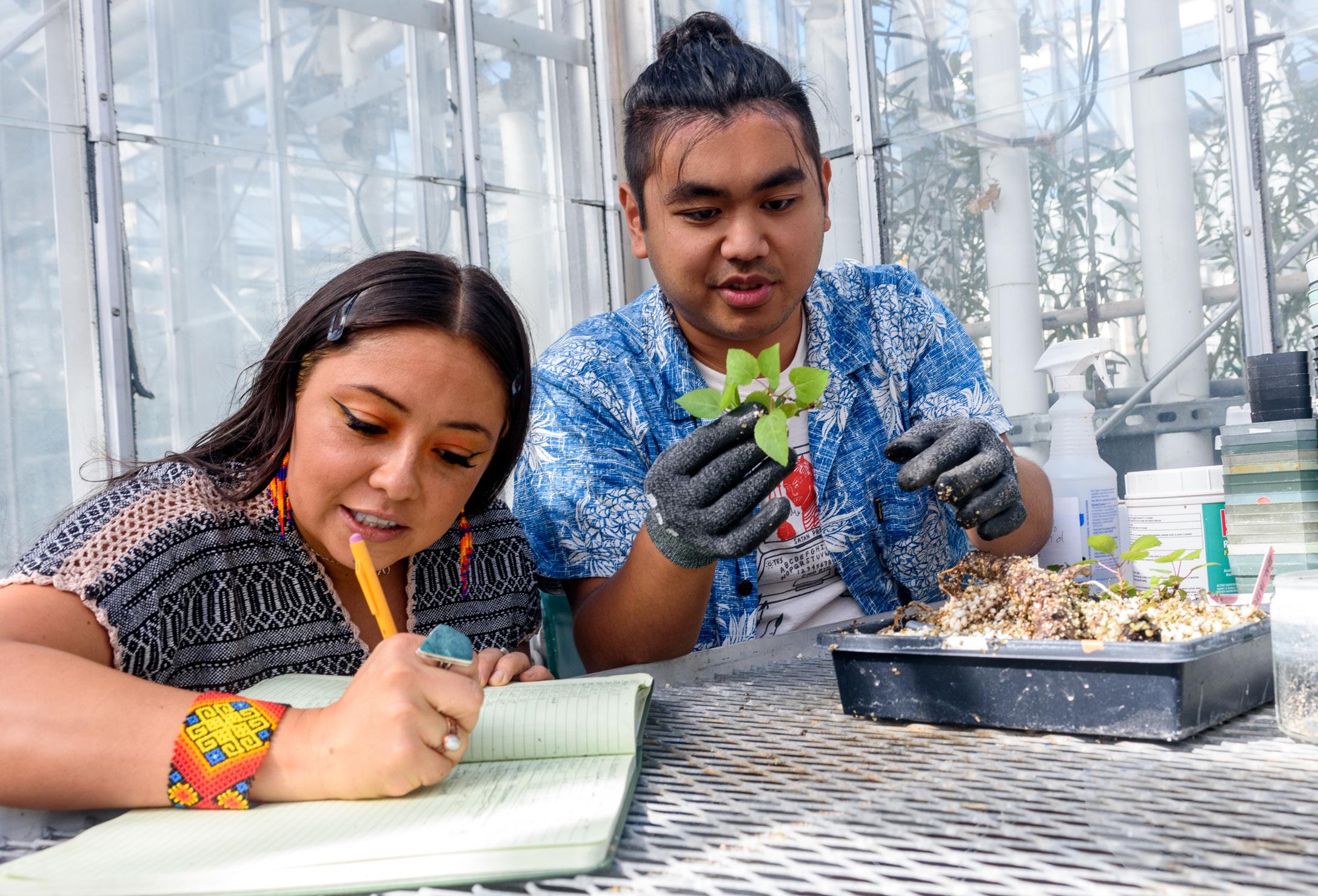
» Align with campus Community Engaged Research and Social Justice initiatives, including the Public Service Center and American Cultures Engaged Scholarship program.
Strengthen linkages between Agricultural Experiment Station (AES) faculty and the Cooperative Extension (CE) system.
» Evaluate potential to revive the Graduate Students in Extension program.
» Strengthen relationships among CE advisors, CE specialists, and AES faculty.
» Create opportunities for CE advisors to recruit Rausser College students as interns for applied research and extension projects.

» Expand Rausser College’s Influence on public policy at local, regional, state, national, and international levels.
» Expand use of the UCDC (Washington) and UC Sacramento centers for active engagement with policy leaders and decision-makers.
» Support faculty and student training and community of practice on public policy engagement.
Objective: Create a culture of innovation and foster entrepreneurial activities.
Invest in new opportunities for engagement with industry and non-governmental organizations.
» Create new 50% time position to support industry partnerships and facilitate technology development and commercialization (two-year pilot).
» Evaluate potential for industry alliance programs in selected areas (e.g. alt-protein, ag-tech, nature-based solutions).
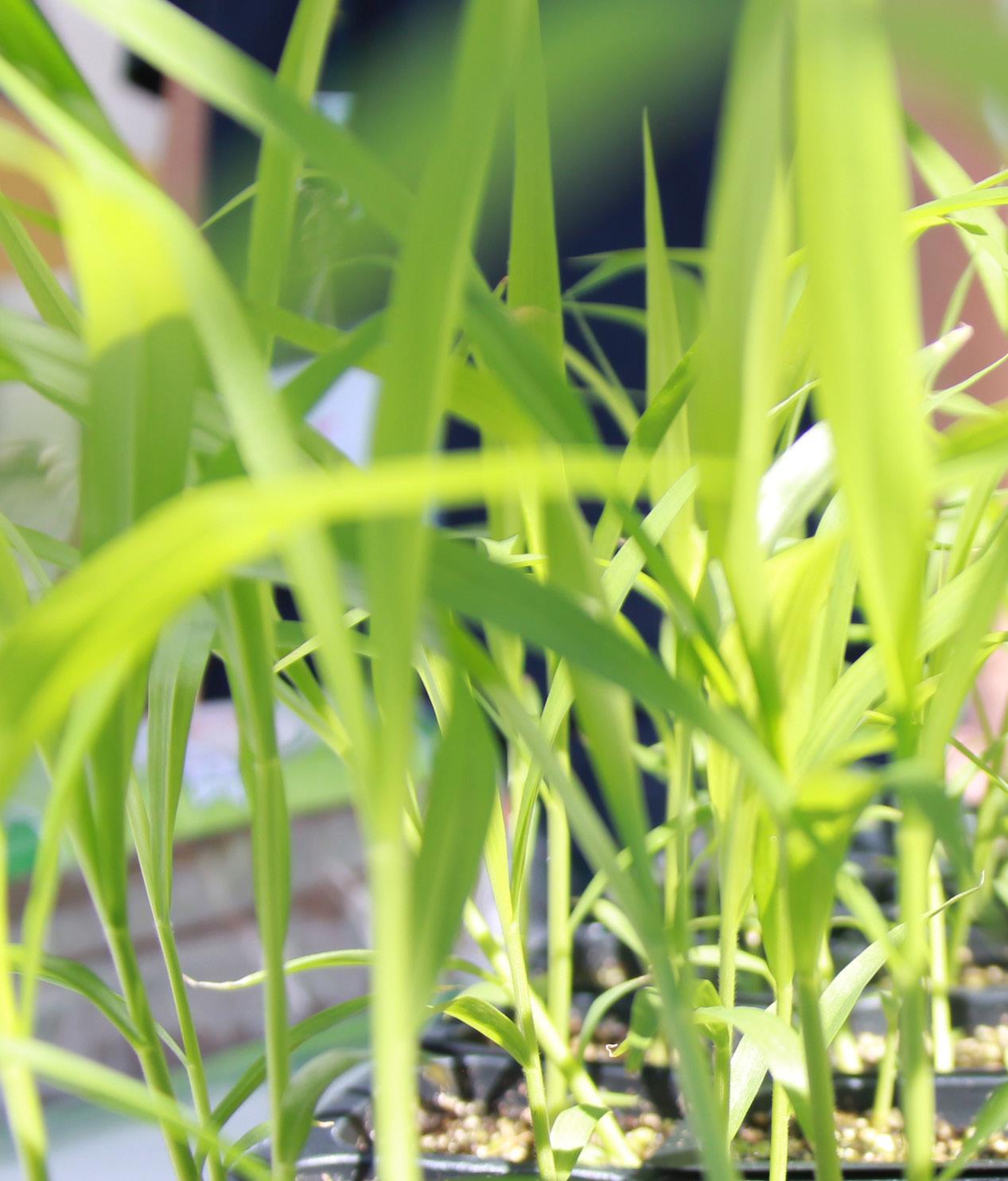
» Create playbook of campus resources and training opportunities to support faculty engagement with the office of Innovation and Entrepreneurship.
Leverage existing campus resources to increase access to new models of venture funding and philanthropy.
» Partner with campus innovation funds to support faculty research and/or generate future philanthropic contributions (Berkeley Frontier Fund, etc.).
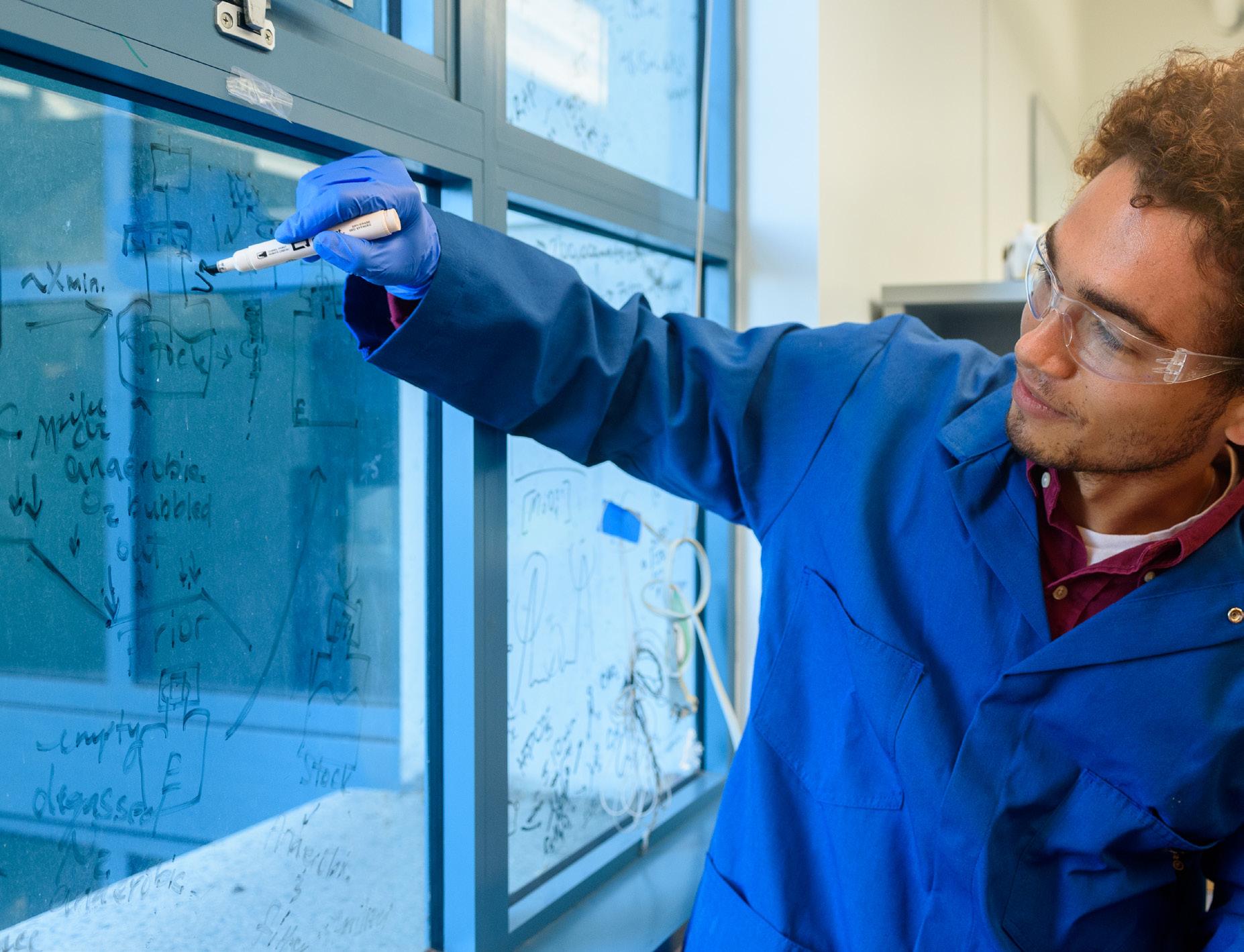
Objective: Connect Rausser College students to their majors and introduce the campus Discovery framework early in their undergraduate career.
Promote Climate Literacy curriculum.
» Develop standards, identify courses that fit those standards, and evaluate a Rausser College undergraduate requirement or expanded offerings.
» Offer online course options (possibly UCSD’s Bending the Curve course).
Enhance First-Year experience and lower-division education.
» Offer a more inspired and discovery-oriented welcome to campus.
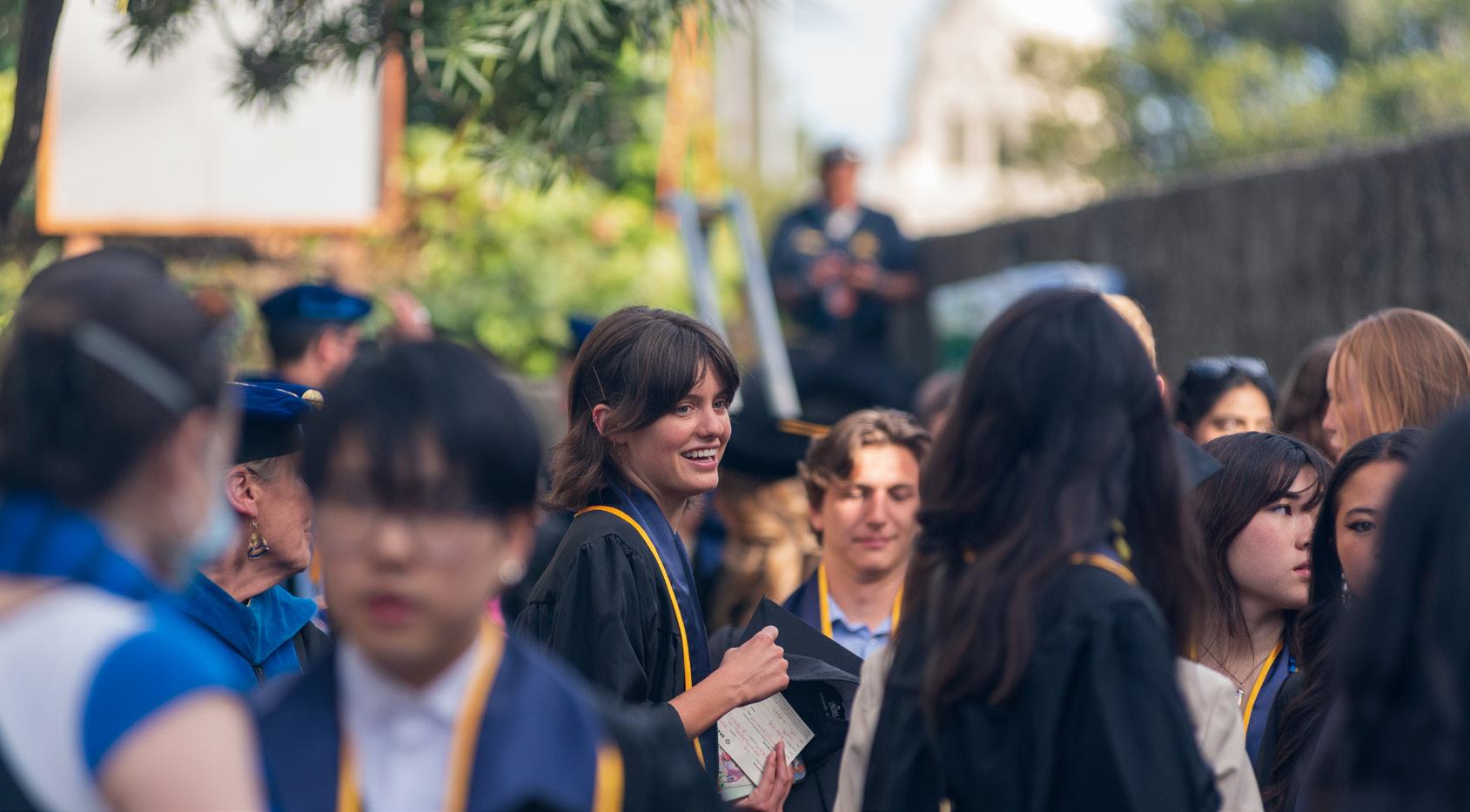
» Expand Natural Resources 76 (Formerly NATRES 24) freshman seminar and other approaches to introduce students to breadth of educational and research opportunities at Rausser College.
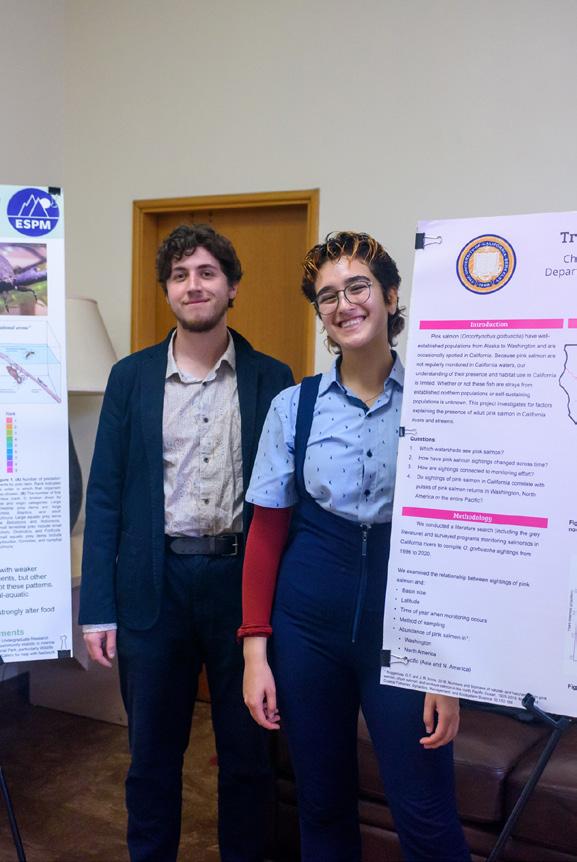
» Increase Impact of Peer Advising Leadership (PALS) group.
» Explore mechanisms to support Rausser College students taking gateway Chemistry, Physics, and Math courses; work with MCB on revisions and restructuring of Bio1A and evaluate alternative introductory biology courses for Rausser College majors.
» Align with the Letters and Science Futures initiative, evaluating the future of lower-division, liberal arts education at UC Berkeley.
Objective: Expand lab and course-based undergraduate research experiences (CURE), and ensure discovery experiences (research, internships, etc.) are available for all students.
Promote faculty engagement with discovery and research curricula.
» Support faculty learning communities on creation of CURE courses and support expanded offerings.
Enhance undergraduate experience through discovery programs, research and mentorship.
» Strengthen and expand Sponsored Project for Undergraduate Research (SPUR) offering, which requires additional funding.
» Expand travel grants and summer internship program to enhance career development opportunities.
Ensure the campus Discovery Portal highlights Rausser College opportunities and serves our students.
» Relaunch career networking events to connect more alumni with undergrads for career mentorship.
Objective: Support and incentivize teaching excellence and inclusive pedagogy.
Support faculty innovation in undergraduate education, curriculum innovation, and course design.
» Provide support for curriculum innovation and course redesign.
» Support and embrace preparation and evaluation of teaching dossiers.
» Elevate recognition of College teaching award.
Expand training and adoption of inclusive and anti-racist pedagogy.
» Expand adoption of toolbox developed in ESPM and support cross-departmental learning and sharing.
» Ensure strong partnerships with campus resources (Center for Teaching and Learning, etc.).
Objective: Improve belonging for all community members and align Rausser College activities with campus DEIB initiatives.
Create new 50% position of Assistant Dean of Equity and Inclusion to expand and support DEIB programming, support the Associate Dean, and partner with departments.
» Create DEIB working group to identify, plan, and coordinate Dean’s Office and departmental initiatives.
» Continue community climate surveys to identify areas for improvement and track change over time.
Support departmental and ongoing DEIB initiatives; evaluate the role of financial support and other incentives/recognition for students and faculty leading DEIB initiatives.
» Recognize extra work that women and people of color (POC) do in support of community and DEIB goals.
» Support Students of Color Environmental Collective (SCEC) and Latinx and Environment (LxE) and seek opportunities to expand Rausser College’s role in undergraduate DEIB opportunities related to the environment.
Develop affinity-based opportunities.
» Work with the Division of Equity and Inclusion and the Vice Provost for Undergraduate Education to identify priority actions that align with campus initiatives.
» Host affinity group workshops in collaboration with campus organizations (e.g., Alianza and others for staff, and faculty of color receptions with the Division of Equity & Inclusion).
» Advance Rausser College’s participation in Native American Studies, tribal partnerships, and implementation of recommendations of the Land-Grab Report.
Objective: Renew and rebuild the Rausser College community, within and across departments.
Renew Staff Climate Committee mission and expand activities.
» Support social events that bring people together across units.
» Evaluate opportunities for enhanced social spaces in our buildings.
Expand on-boarding, mentoring, and professional development for staff.
Objective: Ensure College activities are aligned with campus Financial Sustainability program and Agricultural Experiment Station mission.
Work closely with campus on development of the Financial Sustainability program, and ensure departments are aware and aligned with emerging incentives.
» Ensure departments are aware and aligned with emerging financial allocation models and provide training and guidance.
Deliver impactful AES projects to State and USDA/NIFA.
Objective: Identify new revenue sources and expand existing revenue-generating programs.
Leverage existing academic structures for enhanced revenue opportunities.
» Support expansion of summer sessions and concurrent enrollment.

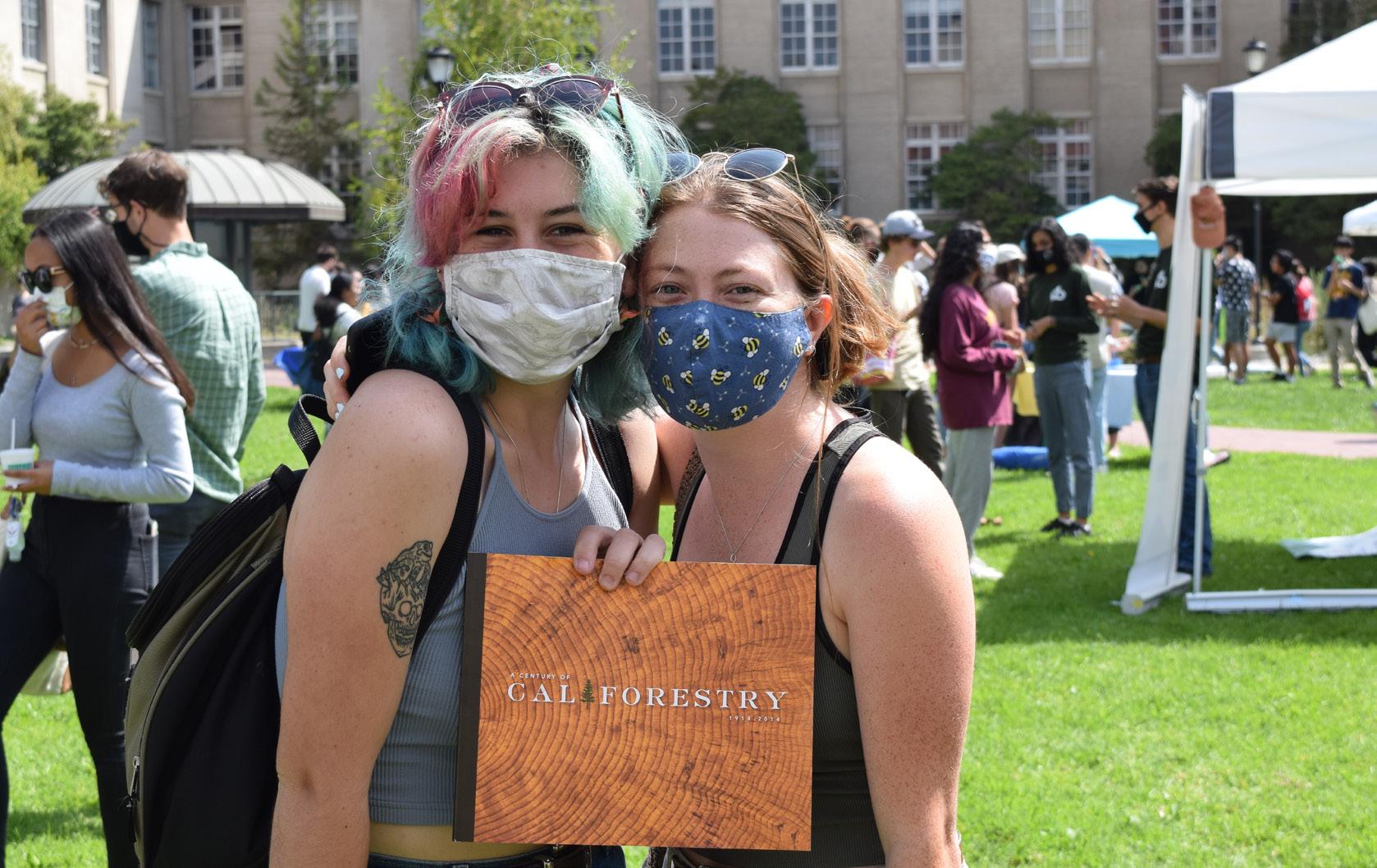
» Support creation of non-degree instructional programs (certificates, etc.).
Maximize utilization of properties managed by the College for revenue generation.
» Support timber sales and revenue management from Berkeley Forests.
Objective: Strengthen and expand donor community. Prepare for post-campaign development activities.
» Celebrate the end of the Light the Way campaign with our donor community (Feb 2024).

» Conduct campaign analysis and evaluation.
» Meet with departments to assess impact and collaborate on needs assessment in preparation for the University’s next campaign.
Increase focus on pipeline development and campaign building and readiness.
» Communicate strategic priorities and utilize the strategic plan in donor engagement.
» Steward major campaign donors and build on new relationships.
Define and quantify impact of campaign and philanthropic investments.
» Produce campaign report.
» Utilize the new web presence for development to highlight campaign success and stories


Objective: Use the opportunity of the 50th Anniversary to tell our story broadly
Hold a yearlong Rausser College 50th Anniversary Celebration.
» Host marquee event bringing together alumni, faculty, staff and students.
» Build communication strategy around the anniversary to communicate our successes and our future directions to faculty and staff within the College and among alumni, campus colleagues, and the broader community.
» Leverage the anniversary for key fundraising priorities.
Objective: Identify opportunities to expand media coverage of Rausser College research, breakthroughs, events, honors, and people.
Increase media pitches of research and other College activities.
» Join the university-wide contract to gain access to Meltwater, a media relations tool that allows for pitching to reporters.
Update College website.
» Expand the “About” section of the College website to more fully reflect the College’s mission, activities, and impact.
» Build new web pages for Strategic Plan and Impact reports.
Pursue strengthening of engagement relationships with faculty for publicity purpose.
» Conduct annual survey asking faculty to submit accomplishments or story ideas.
» Send a weekly internal email “news roundup” so faculty are more aware of colleague’s news and communications pieces.
To ensure successful implementation of the Strategic Plan, the College will track and evaluate a series of key metrics and impacts. These metrics and key performance indicators will be used to evaluate and assess Rausser College’s progress toward meeting its Strategic Plan goals and objectives. The Strategic Plan is intended to be a living, dynamic, and accessible document that will evolve as the College does. As such, the outputs and outcomes may be refined as the vision gets implemented.
Metrics identify the College’s impact and typically can be tracked and quantified on a yearly basis. They help the College better understand its reputation, accessibility, and impact. The goal of the College is to track each of the following outputs as a way to measure the success of the Strategic Plan initiatives.
College Ranking
Prominence among peers
Publications
Peer-reviewed journals and articles
Citations
Media spots and policy leadership
Grant Awards
Number, size, and total value
Enrollment & Degrees
Number, type, and diversity
Faculty Recognition
Awards, chairs, and tenure-ships
Department Rankings
Prominence among specific programs
Philanthropy
Types and value of new revenue sources
Diversity
Students, faculty, researchers and staff
Community Partners
Number and types
While outputs help the College track progress towards meeting the goals and objectives of the Strategic Plan, impacts are the actual results of this effort. They show the positive effect and impact the actions have had both internally and externally.
» Advancing Fundamental Knowledge
» Having Alumni Who Make a Difference

» Expanding Applied Research
» Growing Community Partnerships
» Creating a Truly Welcoming College Community

Javier Arevalo
Stacey Baba
Richard Beahrs
Lewis Bichkoff
Arianna Carughi
Mike Cheng
Louis Cimmino
Michael Colvin
Jill Elfishawy
Josh Fisher
Linda Schacht Gage
David Gilbert
Kass Green
Caryl Hart
Kathy Hartzell
Deborah Hicks
Steve Hurst
Janet King
Vernard Lewis
William W. Liu
Caroline Maser
Udochi Mbonu
Steve McCormick
Leila Njee Bugha
Cliff Ohmhart
John Pardee
STRATEGIC PLANNING COMMITTEE
College Faculty/ Cooperative Extension
David Ackerly, Dean (chair)
Jeremy Magruder, ARE
David Anthoff, ERG
Ron Amundson, ESPM
Elizabeth Hoover, ESPM
Andreas Stahl, NST
Kris Niyogi, PMB
Michi Taga, PMB
Maggi Kelly, ESPM CE Specialist
College Staff
Lee Borrowman, Executive Assistant Dean
Kathryn Baldwin, Assistant Dean of Development, Office of College of Relations
Mio Katayama Owens; fo Assistant Dean, International and Executive Programs
Joshua Dullaghan, Assistant Dean of Instruction and Student Affairs
Nicole Lowy, ESPM Department Manager
Viana Pham
Vince Resh
Sandeep Sacheti
Jate Samathivathanachai
Henry Seaborne
John Scharffenberger
David Sunding
David Warner
Bryan Wilson
William Woods
Laura Young
Alexandria Zermeño
MIG Consulting
Daniel Iacofano, President/CEO
Dan Amsden, Principal
Aaron Ishaeik, Creative Director
Ellie Gertler, Project Associate
Amanda Luckey, Project Associate
WORKING GROUP A: ADVANCING OUR RESEARCH AND EDUCATIONAL PROGRAMS
Kris Niyogi, Faculty, PMB (working group chair)
Allen Goldstein, Faculty, ESPM, Associate Dean for Academic Affairs
Max Auffhammer, Faculty, ARE
Ian Wang, Faculty, ESPM
Michael Mascarenhas, Faculty, ESPM
WORKING GROUP B: EDUCATING FOR STUDENT SUCCESS
Michi Taga, Faculty, PMB (working group chair)
Kate O’Neill, Faculty, ESPM, Associate Dean for Instruction and Student Affairs
Greg Aponte, Faculty, NST
Bree Rosenblum, Faculty, ESPM
Aprajit Mahajan, Faculty, ARE
Alastair Iles, Faculty, ESPM
Kathleen Ryan, Faculty, PMB
Joshua Dullaghan, Assistant Dean of Instruction and Student Affairs
Temple Byars, Advisor/Scheduler, OISA
Linda Rafferty, Director of Annual Fund & Alumni Affairs, Office of College Relations
Marc Hellerstein, Faculty, NST
Karine Gibbs, Faculty, PMB
Leah Gulyas, PhD Student, PMB
Isaac Aguilar, Undergraduate, Peer Advisor
Ananya Raghavan, Undergraduate, Peer Advisor
WORKING GROUP C: RIGHTSIZING OUR GRADUATE PROGRAMS
Jeremy Magruder, Faculty, ARE (working group chair)
David Anthoff, Faculty, ERG
Andreas Stahl, Faculty, NST
Perry de Valpine, Faculty, ESPM
Arash Komeili, Faculty, PMB
Nicole Lowy, Department Manager, ESPM
Carmen Karahalios, Graduate Student Affairs Officer, ARE
Lisa Rennels, PhD Student, ERG
Kaitlyn Vitangcol, PhD Student, NST
WORKING GROUP D: INFLUENCING PUBLIC POLICY AND ENGAGING COMMUNITIES
Maggi Kelly, Faculty and CE Specialist, ESPM (working group chair)
Nick Mills, Faculty, ESPM, Executive Associate Dean
Joe Shapiro, Faculty, ARE
Dan Kammen, Faculty, ERG
Whendee Silver, Faculty, ESPM
Peggy Lemaux, CE Specialist, PMB
Jennifer Sowerwine, CE Specialist, ESPM
Mio Katayama Owens, Assistant Dean for International and Executive Programs
Kassie Darling, Events Director, Office of College Relations
Nina Ichikawa, Executive Director, Berkeley Food Institute
Rosalie Fanshel, PhD Student, ESPM
Jenny Rempel, PhD Student, ERG
WORKING GROUP E: STRENGTHENING THE COLLEGE COMMUNITY
Elizabeth Hoover, Faculty, ESPM (working group chair)
Isha Ray, Faculty, ERG, Associate Dean for Equity and Inclusion
Sofia Villas-Boas, Faculty, ARE
Justin Brashares, Faculty, ESPM
Damian Elias, Faculty, ESPM
Stephanie Carlson, Faculty, ESPM
Lee Borrowman, Executive Assistant Dean
Joanne Straley, Department Manager, PMB
WORKING GROUP F: BUILDING OUR FINANCIAL RESOURCES
David Ackerly, Dean (working group chair)
Duncan Callaway, Faculty, ERG
Anders Naar, Faculty, NST
John Coates, Faculty, PMB
Louise Glass, Faculty, PMB
James Sallee, Faculty, ARE
Lee Borrowman, Executive Assistant Dean
WORKING GROUP G: TELLING OUR STORY
Ron Amundson, Faculty, ARE (working group chair)
Adina Merenlender, CE Specialist, ESPM
Rachel Brem, Faculty, PMB
Rausser College thanks all photographers who contributed images in this plan.
Anastasiia Sapon
Andrea Salazar
Anjika Pai
Becca Fenwick
Emma Steigerwald
David Zilberman, Faculty, ARE
Dara O’Rourke, Faculty, ESPM
Julie Gipple, Director of Communications, Dean’s Office
Nalui Garcia, Financial Analyst, Dean’s Office
Yesenia Valverde, PhD Student, ESPM
Diyala Shihadih, PhD Student, NST
Matthew Wong, Undergraduate, Peer Advisor
Kathryn Baldwin, Assistant Dean of Development, Office of College Relations
Mio Katayama Owens, Assistant Dean for International and Executive Programs
Elena Zhukova
Keegan Houser
Mathew Burciaga
Tasha Todt
William Brinkerhoff
Andrew Judd, Director of Development, Office of College Relations
The College would also like to thank the many staff, faculty, researchers, undergraduate students, graduate students, donors, and partners who provided ideas and insights during the strategic visioning process.
